Particle Physicist Fabiola Gianotti Has Become The First Woman To Head CERN, The Organization Based In

Particle physicist Fabiola Gianotti has become the first woman to head CERN, the organization based in Switzerland that is home to the Large Hadron Collider. She succeeds outgoing director-general Rolf Heuer, who oversaw the laboratory’s operations for the last seven years.
Previously, Gianotti headed the ATLAS collaboration, one of two teams responsible for the discovery of the elusive Higgs boson on July 4, 2012. She quickly became a favorite figure in the media coverage surrounding that achievement — partly because of her gender (only 20% of the ATLAS team were women), and for her elegantly understated style, but also for her good humor.
For instance: Her use of the much-derided Comic-Sans typeface on her Powerpoint slides during that historic announcement was the source of much Internet amusement. Gianotti took the ribbing in stride. She even made an April Fool’s Day decree to make Comic Sans the official document typeface for all of CERN. She was a runner-up for Time magazine’s Person of the Year in 2012.
Gianotti’s father is a retired geologist, while her mother had a passion for music and art. Their daughter, born in 1962, effortlessly straddles both cultural realms, excelling not just in physics, but also music, cooking, and even dance (she trained as a ballerina as a child). “Musical harmony is based on physical principles while in cooking, ingredients must be weighed out with precision,” she told the Guardian in 2014, when her selection as the next director-general of CERN was announced. “At the same time, you have to able to invent, because if one follows the same recipe all the time, you never create anything new.”
More Posts from Tzshuvah-blog and Others
It is my belief… that the truth is generally preferable to lies.
J.K. Rowling, Harry Potter and the Goblet of Fire (via books-n-quotes)
I know now that I don’t want to love or be loved in half measures. I want it all, and to have it all, you have to risk it all.
Jenny Han, P.S. I Still Love You (via books-n-quotes)
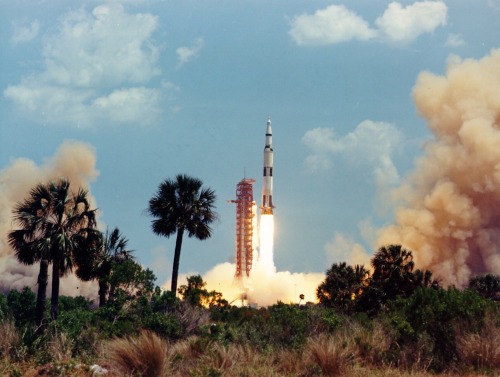
The launch of Apollo 16.
The NASA Village
Today in the NASA Village… Map my brain.
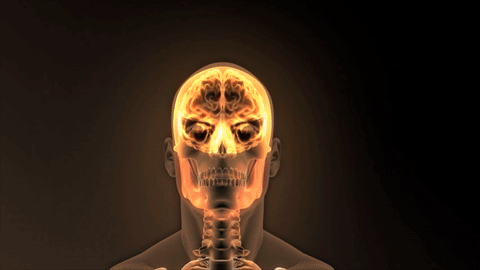
There are teams of people performing data analysis at NASA every day. Nichole Gadd is one of these scientists, NeuroMapping brain scans, observing the functional and behavioral obstacle courses and fine movement tests, and even the rover simulations.

Spaceflight can be very disorienting to a brain. NeuroMapping studies help us understand if long-duration spaceflight causes any changes to the brain, including brain structure and function, motor control, and multi-tasking abilities. It also measures how long it would take for the brain and body to recover from potential changes. Previous research and data from astronauts show one of the largest impacts is movement control and cognition. This means the astronauts begin to have trouble understanding themselves in relation to their surrounding space.
In this video, my fellow astronaut Tracy Caldwell Dyson recently talked about studies looking at astronaut brains.
It is essential these risks are better understood while astronauts remain in Earth’s orbit. Without better understanding these effects, traveling into deep space could have unseen and serious ramifications.
What’s better than a ʺnever give up on your dreamsʺ speech? Nichole shared her thoughts, “I would have to say enjoy every moment of where you are placed. Enjoy the long stressful hours of finishing school, enjoy the quiet yet equally stressful time of unemployment, and enjoy the not so fun jobs you wish you really didn’t have. I learned pivotal things in each of those seasons that shaped where I am today, and when I was finally content in where I was placed and not worried about what was next. THATS when Wyle called me for an interview. Just enjoy the ride that is your unique and purposeful life.”
Nichole says, “I find it funny in the slow times when there is not a lot of testing going on, and a lot more data analysis while sitting at your desk. I think back to a time when I was waking up at 4 in the morning to work black Friday with hoards of humanity waiting outside of the stores and think ʺyou know what…I could do data analysis all day.ʺ
Next time on the NASA Village… Robot Arms.
Do you want more stories? Find our NASA Villagers here!
this one is too cute
tell the moon i love her
Dear moon, @324b2dun loves you. Happy Valentines!

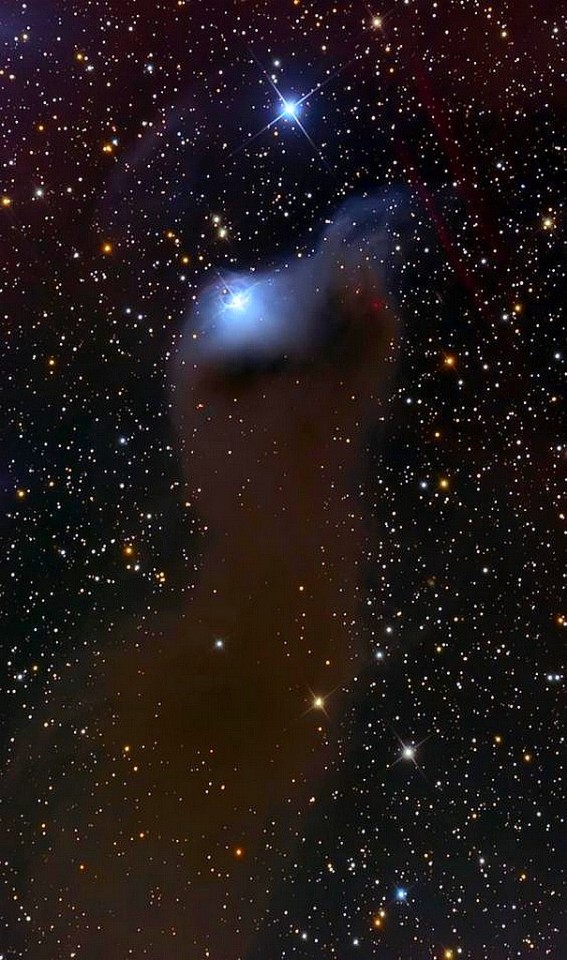
Described as a “dusty curtain” or “ghostly apparition”, mysterious reflection nebula VdB 152 really is very faint. The cosmic phantom is nearly 1,400 light years away and it lies along the northern Milky Way in the royal constellation Cepheus. Near the edge of a large molecular cloud, pockets of interstellar dust in the region block light from background stars or scatter light from the embedded bright star giving parts of the nebula a characteristic blue color.
Ultraviolet light from the star is also thought to cause a dim reddish luminescence in the nebular dust. Though stars do form in molecular clouds, this star seems to have only accidentally wandered into the area, as its measured velocity through space is very different from the cloud’s velocity. This deep telescopic image of the region spans about 7 light-years.
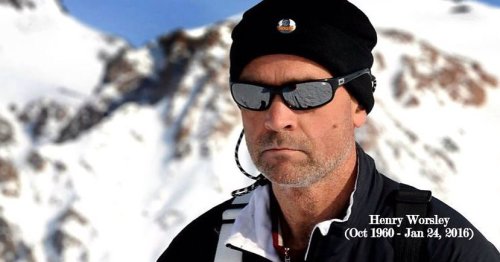
We shared a personal hero. #RIP #HenryWorsley. Your effort was epic! #ShackletonSolo #expedition #exploration #hero #explore #endurance
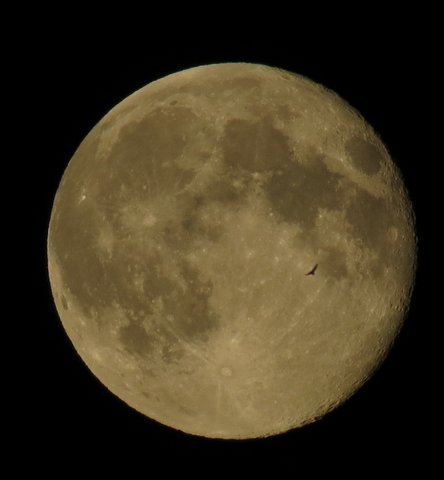
Bird of prey flying past the Supermoon
Source: https://imgur.com/yzDAZyB
a prime number that has a remainder of 1 after division by 4 (like 41) can always be written as the sum of two square numbers (41=16+25).
Chasing Storms at 17,500mph
Flying 250 miles above the Earth aboard the International Space Station has given me the unique vantage point from which to view our planet. Spending a year in space has given me the unique opportunity to see a wide range of spectacular storm systems in space and on Earth.
The recent blizzard was remarkably visible from space. I took several photos of the first big storm system on Earth of year 2016 as it moved across the East Coast, Chicago and Washington D.C. Since my time here on the space station began in March 2015, I’ve been able to capture an array of storms on Earth and in space, ranging from hurricanes and dust storms to solar storms and most recently a rare thunder snowstorm.

Blizzard 2016

Hurricane Patricia 2015

Hurricane Joaquin 2015

Dust Storm in the Red Sea 2015

Dust Storm of Gobi Desert 2015

Aurora Solar Storm 2015

Aurora Solar Storm 2016

Thunderstorm over Italy 2015

Lightning and Aurora 2016

Rare Thunder Snowstorm 2016
Follow my Year In Space on Twitter, Facebook and Instagram.
-
 slimegirlnuclei reblogged this · 4 years ago
slimegirlnuclei reblogged this · 4 years ago -
 stevia333k reblogged this · 5 years ago
stevia333k reblogged this · 5 years ago -
 stevia333k liked this · 5 years ago
stevia333k liked this · 5 years ago -
 wisteriarosea liked this · 7 years ago
wisteriarosea liked this · 7 years ago -
 reapersfeast123 liked this · 7 years ago
reapersfeast123 liked this · 7 years ago -
 marglyns liked this · 8 years ago
marglyns liked this · 8 years ago -
 jill-say-her-name liked this · 8 years ago
jill-say-her-name liked this · 8 years ago -
 rockiesborn reblogged this · 8 years ago
rockiesborn reblogged this · 8 years ago -
 rockiesborn liked this · 8 years ago
rockiesborn liked this · 8 years ago -
 outofcheese reblogged this · 8 years ago
outofcheese reblogged this · 8 years ago -
 outofcheese liked this · 8 years ago
outofcheese liked this · 8 years ago -
 elegantpaws reblogged this · 8 years ago
elegantpaws reblogged this · 8 years ago -
 eityu liked this · 8 years ago
eityu liked this · 8 years ago -
 integration-by-party liked this · 8 years ago
integration-by-party liked this · 8 years ago -
 pirateprude liked this · 8 years ago
pirateprude liked this · 8 years ago -
 drsallygrissom reblogged this · 8 years ago
drsallygrissom reblogged this · 8 years ago -
 andibasson-blog reblogged this · 8 years ago
andibasson-blog reblogged this · 8 years ago -
 mccafe-squad-blog liked this · 8 years ago
mccafe-squad-blog liked this · 8 years ago -
 zanimator liked this · 8 years ago
zanimator liked this · 8 years ago -
 zanimator reblogged this · 8 years ago
zanimator reblogged this · 8 years ago -
 thedoctorknits reblogged this · 8 years ago
thedoctorknits reblogged this · 8 years ago -
 anythink-uruz liked this · 8 years ago
anythink-uruz liked this · 8 years ago -
 darneareads reblogged this · 8 years ago
darneareads reblogged this · 8 years ago -
 darneareads liked this · 8 years ago
darneareads liked this · 8 years ago -
 loudman1 reblogged this · 8 years ago
loudman1 reblogged this · 8 years ago -
 thatmakesyoucold liked this · 8 years ago
thatmakesyoucold liked this · 8 years ago -
 steampunkharley liked this · 8 years ago
steampunkharley liked this · 8 years ago